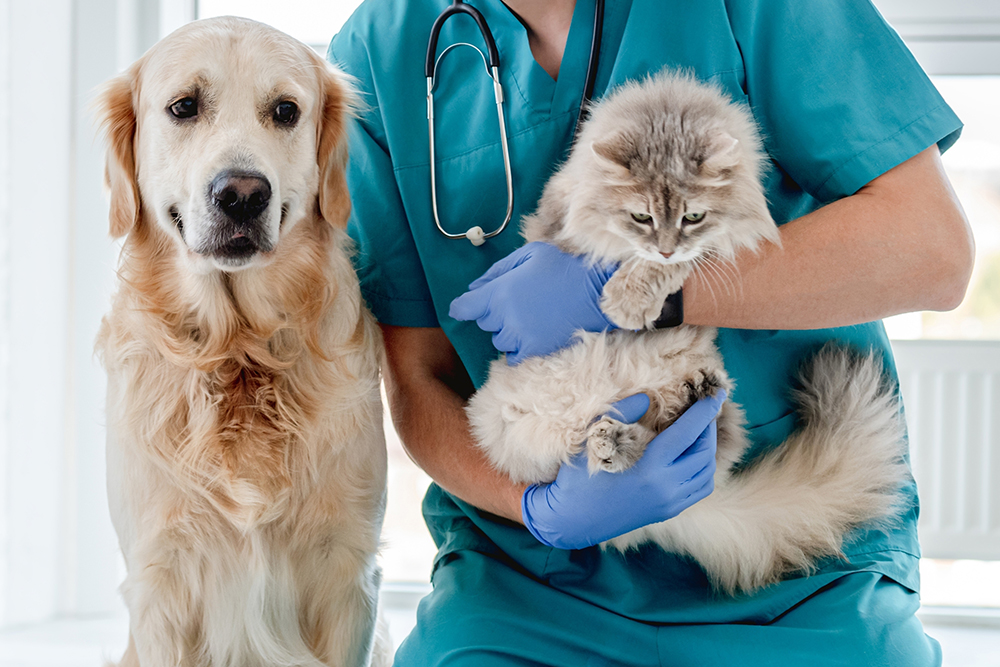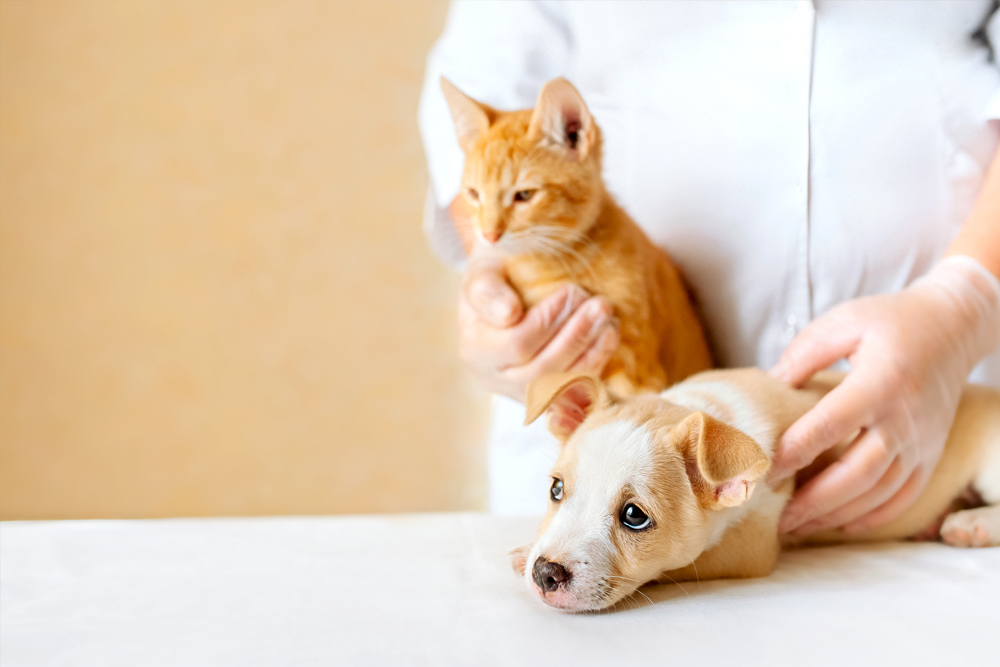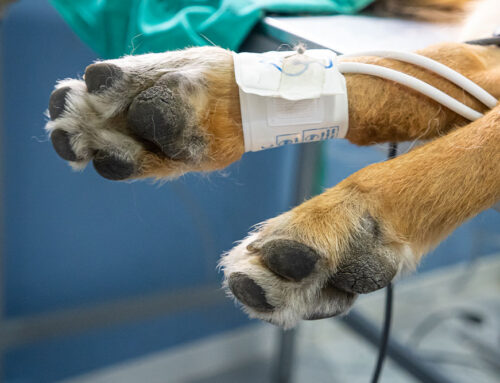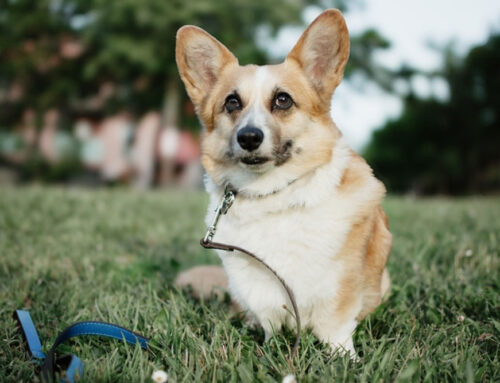Vaccines at Every Age: Lifelong Protection for Pets
As pets grow older, their needs evolve- but protection from disease remains essential. A sleepy senior cat or relaxed older dog still faces invisible risks from viruses and bacteria in the environment. Vaccination is the simplest and most effective way to prevent illness and maintain wellness through every stage of life.
At Krichel Animal Hospital in Keokuk, IA, our team tailors vaccination plans to your pet’s unique lifestyle, health status, and age. We help families make informed decisions so pets stay protected, comfortable, and healthy from puppyhood to the golden years.
Why Vaccination Matters Throughout Life
The Science Behind Immunity
Vaccines are your pet’s first defense against infectious disease. By introducing a harmless version of a virus or bacteria, vaccines “train” the immune system to recognize and destroy real pathogens before they cause harm. This process not only safeguards your pet but also contributes to community immunity, reducing disease transmission within local pet populations.
Effective vaccination prevents diseases like canine distemper, which can cause lifelong neurological damage, and rabies, which remains fatal once symptoms appear. Feline leukemia virus is another critical concern, as it weakens immunity and increases cancer risk in cats.
Core Vaccines: The Foundation of Pet Protection
Dogs:
Core vaccines protect dogs from the most dangerous and widespread diseases: rabies, distemper, parvovirus, adenovirus (hepatitis), and leptospirosis.
Rabies vaccination safeguards both pets and people from a fatal virus, while the DHPP combination (distemper, hepatitis, parvovirus, and parainfluenza) prevents severe, highly contagious illnesses. Leptospirosis, now considered a core vaccine, defends against a bacterial infection spread through standing water or wildlife that can cause kidney and liver damage and also infect humans.
Cats:
Core vaccines protect cats from rabies, viral rhinotracheitis, calicivirus, and panleukopenia, which together form the FVRCP combination. These viruses can cause fever, respiratory distress, and gastrointestinal illness and may spread rapidly- even in indoor environments.
The Feline Leukemia Virus (FeLV) vaccine is also core for all cats under one year of age. This virus spreads through grooming, saliva, or close contact and can cause cancer or immune suppression, making early protection essential for every kitten.
Lifestyle Vaccines: Tailored to Exposure Risks
Dogs:
Beyond core protection, additional vaccines may be recommended based on environment, travel, or social activity:
- Canine influenza: Protects against highly contagious respiratory infections common in social or boarding dogs.
- Kennel cough: Helps prevent persistent coughing caused by airborne respiratory pathogens in grooming, daycare, or boarding settings.
- Lyme disease: Shields dogs in tick-prone regions from a bacterial infection that can cause joint pain, fever, and kidney complications.
Cats:
- Feline leukemia virus (FeLV): Boosters may still be recommended for older cats who go outdoors or live in multi-cat households.
- Bordetella bronchiseptica: Valuable for cats in catteries, shelters, or multi-cat homes to reduce contagious respiratory infections.
Regional Health Risks in Keokuk and the Mississippi Valley
Iowa’s river valleys and wooded areas present specific health challenges. Standing water and local wildlife increase exposure to leptospirosis, while expanding tick populations raise the risk of Lyme disease. Both conditions are preventable through vaccination and year-round parasite control.
Our veterinarians stay current with regional disease trends to ensure every vaccination plan reflects the latest local data and seasonal patterns.
Vaccination by Life Stage
Puppies and Kittens: Building Immunity from the Start
Young animals rely on a sequence of vaccines to replace the short-lived protection passed from their mothers. These begin around 6–8 weeks of age and continue every 3–4 weeks until 16–20 weeks. This schedule ensures consistent antibody development as maternal immunity fades.
Each booster reinforces the immune response and prevents dangerous gaps in protection. Vaccination at this stage is critical for diseases like parvovirus in puppies or panleukopenia in kittens, both of which can be rapidly fatal.
Understanding life stages for dogs and cats helps owners anticipate changing needs as pets grow.
Adult Pets: Maintaining a Strong Immune Defense
After the initial series, adult pets move into maintenance care. Boosters are scheduled annually or every three years depending on the vaccine and exposure risk.
Dogs that visit parks, groomers, or boarding facilities benefit from updated respiratory vaccines, while cats that transition from indoor to outdoor living need additional coverage for feline leukemia or respiratory illnesses.
Annual exams allow veterinarians to reassess health, review local risks, and update vaccination plans accordingly. Routine veterinary visits also include screenings for dental health, weight changes, and early signs of illness.
Senior Pets: Adjusting to Changing Health
Older pets may not mount as strong an immune response to vaccines, but they are also more vulnerable to disease. Vaccination protocols for seniors focus on maintaining essential protection while reducing unnecessary stress.
Veterinarians consider chronic conditions like heart disease, kidney issues, or cancer when designing vaccination schedules. Core vaccines such as rabies and distemper typically remain, while non-core vaccines may be adjusted based on exposure.
According to feline vaccine benefits and risks research, individualized vaccination remains key to keeping older pets healthy and comfortable.
Recognizing Vaccine Reactions and What to Expect
Common Mild Reactions
Most pets experience no side effects beyond mild tiredness or tenderness at the injection site. Temporary appetite loss or slight swelling is normal and typically resolves within 24–48 hours. These minor responses mean the immune system is actively working.
When to Contact the Vet
Serious vaccine reactions are rare but can occur. Seek immediate veterinary attention if your pet experiences facial swelling, hives, vomiting, or collapse shortly after vaccination. While these cases are extremely uncommon, prompt care ensures a safe recovery.
At Krichel Animal Hospital, every vaccine is handled and stored according to strict safety standards. Our AAHA accreditation reflects our commitment to precision, safety, and ongoing staff training in the latest preventive care protocols.
Addressing Common Vaccine Misconceptions

Myth 1: Indoor Pets Don’t Need Vaccines
Even indoor-only pets are at risk. Infectious diseases can travel on clothing, shoes, or other animals. Bats or wildlife may enter homes, bringing exposure to rabies. Vaccination ensures protection against unexpected contact with pathogens.
Myth 2: Vaccines Cause More Harm Than Good
Extensive research shows that vaccines save countless lives and rarely cause serious side effects. Scientific evidence continues to affirm that the benefits of vaccination far outweigh the risks. True allergic reactions are uncommon, and vaccine monitoring programs track safety continuously.
Myth 3: Senior Pets Don’t Need Vaccines
While older pets may have slower immune responses, they are also more susceptible to infection. Adjusted schedules maintain protection while respecting health changes.
The Importance of Ongoing Veterinary Care
Routine Visits Build Health and Confidence
Vaccines are most effective when paired with comprehensive wellness care. Regular exams help monitor changes in weight, behavior, and organ function while allowing your veterinarian to update vaccines as needed. Consistent preventive visits also give owners peace of mind that their pet’s health is closely monitored throughout life.
Trusted, Compassionate Veterinary Partnership
At Krichel Animal Hospital, we believe vaccination is just one part of lifelong preventive care. Our team focuses on comfort and communication, ensuring pets stay relaxed while owners stay informed. We take time to explain recommendations and create positive experiences that make routine care stress-free for everyone.
A Lifetime of Health Starts with Protection
Vaccination protects pets from disease, supports community safety, and provides peace of mind for families. Whether your pet is beginning their first round of shots, maintaining annual boosters, or adapting care in their senior years, the right plan evolves with them.
If your pet is overdue for vaccines or you have questions about their schedule, Krichel Animal Hospital is here to help. Our experienced team provides complete preventive care, health screenings, and tailored vaccination programs for every stage of life.
Schedule your appointment today through our online request form, or learn more about our full range of services. For personalized advice or to speak with our team directly, contact Krichel Animal Hospital. Protect your pet’s future health- starting today.







Leave A Comment